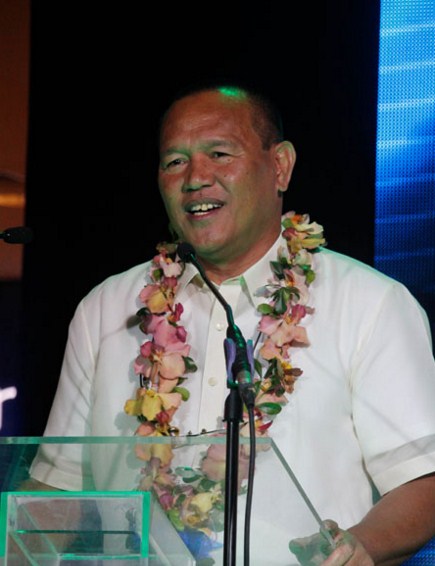14 Nov Mayor Oscar Moreno: Cagayan de Oro City Mayor Now Dismissed from Service and with More Complications Soon to Follow
On October 6, 2015 the Office of the Ombudsman Conchita Carpio Morales approved a decision that found Cagayan de Oro City Mayor Oscar Moreno guilty of committing Grave Misconduct after entering into a settlement agreement with Ajinomoto Philippines without prior authorization from the City Council in violation of Republic Act No. 7160 under the Local Government Code. The decision was released on November 5, 2015 and ordering the immediate dismissal of Moreno upon the serving of the decision.
Also dismissed from service was Glenn Bañez, officer-in-charge of the City Treasurer’s Office. According to the Office of the Ombudsman, both Moreno and Bañez failed to file counter-affidavits in response to the Ajinomoto case. According to the decision of the Ombudsman, Moreno and Bañez are held liable for entering into a court agreement with Ajinomoto Philippines Corporation on August 2014 that allowed the latter to pay P300,000 instead of its original local business tax deficiency of P2.9 million. However, the court approval does not in any way legitimize the acts of Moreno and Bañez since they did not go through the City Council.
For his side, Moreno called the decision “a serious miscarriage of justice” and argued that the Ombudsman failed to take into account his counter-affidavit which he filed on April 20, 2015 through his and Bañez’s lawyer, Atty. Jonathan Pacuribot. Moreno has now filed a motion for reconsideration with the Ombudsman and has also filed for a temporary restraining order (TRO) to prevent the execution of the order. On November 12 a lawyer from the regional office of the Department of the Interior and Local Government served Moreno’s dismissal order. At 7:00 p.m. on that same day, Cagayan de Oro City Vice Mayor Cesar Ian Acenas took his oath as acting mayor. Councilor Lourdes Candy Darimbang was also sworn in as acting vice mayor.
When the news of Moreno’s dismissal came out even before the release of the Ombudsman’s decision, Moreno became the “talk of the town” anywhere you went. However, most of the discussion centered on Moreno’s slim chances of running for re-election as mayor since COMELEC rules disqualifies any dismissed politician from running again. Adding flavor to the discussion is the controversial decisions of former mayor Vicente “Dongkoy” Emano and Representative Rufus Rodriguez to also run for mayor. Emano is under controversy due to his advanced age, ill-health condition, and pending cases with the Ombudsman while many see Rodriguez’s decision on self-demotion as a way to cloud the issue of his pending PDAF (pork barrel) case with the Ombudsman.
But it is not the coming election we want to dissect here, but rather the case itself that got Moreno dismissed in the first place. We need to approach the case based on what exists because logic is virtually useless to analyze Philippine politicians. After all, while we see news reports of Japanese, American, and European politicians who actually apologize for their crimes and step down from their position when they are ordered to by higher authorities, our politicians are known for their modus operandi when suspended or dismissed: 1) Deny everything, 2) Use words like “injustice”, “unfair decision”, “politically motivated move”, and the like to that effect when interviewed, 3) File a motion for reconsideration, 4) File for TRO, 5) Outright refusal to leave office. Moreno almost didn’t leave office and actually camped out overnight on Thursday with some supporters, the day the decision was handed to him, but he had the logical sense to instead tell everybody to go home and let the courts sort out the mess.
The case all started when one William Guialani, a self-professed moral crusader, businessman, and former barangay chairman of Taglimao filed several complaints with the Ombudsman against Moreno. One of these was a graft complaint that alleged that acting city treasurer Bañez and mayor Moreno allegedly entered into a court agreement on August 2014 with Ajinomoto Philippines Corporation to cut its delinquent taxes covering the period 2006 to 2012 from P2.9 million to just P300,000. Guialani stated that this agreement is illegal even when coursed through the local courts since it did not carry a supporting resolution passed by the City Council. What also swayed the Ombudsman to dismiss Moreno is his and Bañez’s alleged failure to submit their counter-affidavits.
This writer has had the opportunity of talking to several “insiders” for their personal witnessing of the case. Suffice it to say that all the trouble started when Bañez himself “discovered” that Ajinomoto products had to be reclassified from ‘essential’ to ‘nonessential.’ This reclassification brought about the alleged delinquent taxes for Ajinomoto. Companies classified as ‘nonessential’ pay slightly higher local taxes compared to those classified as ‘essential.’
An insider pointed out that in most cases where there is a tax reclassification the company, establishment, and institution is not held liable for the reclassification since this is the responsibility of the city treasurer and therefore, no tax delinquencies are pending. A new tax scheme will instead be implemented beginning on the date of the reclassification. Based on this alone, Ajinomoto is supposedly absolved from paying so-called delinquent taxes.
Another insider pointed out that Bañez was under some pressure to increase the city’s revenue collection and saw the reclassification of Ajinomoto as an opportunity. However, Ajinomoto was prepared to battle it out in court and only decided to pay the P300,000 in order to settle things down rather than go to a more prolonged battle that might affect their business interests. Other insiders also pointed out that through all this it would be virtually impossible for Moreno to have no knowledge of what was happening – as he alleges in his counter-affidavit – because the city treasurer has to keep the city mayor informed of major transactions and cases. Also, another insider alleges that since Moreno alleges that he had no prior knowledge of the proceedings even when already in court, this sets up Bañez as the fall guy, the scapegoat, the guy left hanging with the cat in the bag, while the mayor gets away scott free.
So, on final analysis and the bottom line is that from the beginning Bañez had no reason to go after Ajinomoto other than to inform them of their reclassification and a new tax payment scheme, and that Ajinomoto’s payment of P300,000 was illegally demanded by Bañez and Moreno. Notwithstanding, Moreno was ready to make Bañez a scapegoat in order to get free.
Note: Every now and then aboutcagayandeoro.com and its parent company LogicBase Interactive LLC comes out with an opinion column to address a specific issue that affects the whole city as well as the region. The opinions, ideas, and even facts stated in the column however, do not necessarily reflect the views of the website and the company.



No Comments